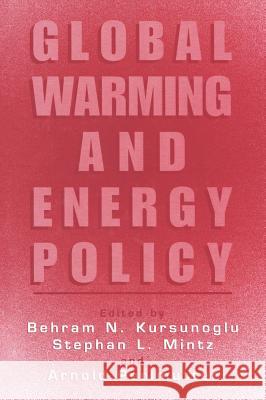Global Warming and Energy Policy » książka
Global Warming and Energy Policy
ISBN-13: 9780306466359 / Angielski / Twarda / 2001 / 220 str.
The first part of the conference explores two major environmental concerns that arise from fuel use: (1) the prospect that the globe will become warmer as a result of emissions of carbon dioxide, and (2) the effect upon health of the fine particles emitted as combustion products. The conference focused on the fact that there was lack of data direct enough to enable us to predict an entirely satisfactory result, and that makes policy options particularly difficult. With regard to (1) above, in the second half of the 20th century there were major increases in anthropogenic C02 emissions, and it is generally agreed that these were responsible for an increase in C02 concentrations. But the relationship between global temperature and CO2 concentrations remains murky. The principal problem is that water vapor is a more important greenhouse gas than C02 and that the concentrations of water vapor vary widely in time and space. The approach to this problem is probably, but not certainly, a positive feedback effect: as temperature increases so does the water vapor leading to further temperature increases. Scientists associated with the Intergovernmental Panel on Climate Change (IPCC) tend to believe the general features of the models. Other scientists are often less convinced.











